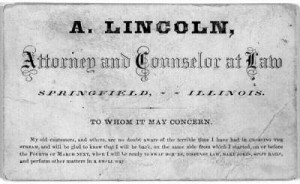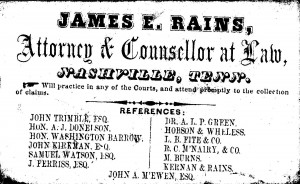 There are billions of people in the world who aren’t able to read this.
There are billions of people in the world who aren’t able to read this.
No, not attorneys, although I’m sure there are still a few who haven’t evolved into the 21st century. But they aren’t my target market.
Would I like to communicate with them? Sure. But I’m willing to lose, say, the 5% who aren’t connected, in favor of the economics of reaching the 95% who are.
How about you? Is your target market connected? Do you know how many are not?
If a significant percentage of your target market isn’t online and you do most of your marketing online, you obviously need other ways to communicate.
But what if the bulk of your target market is online? Can you safely ignore the few who aren’t?
If you’re just looking at the numbers, sure. But there are some situations where it makes sense to have other options.
Take business cards, for example. There is a trend today towards the digital business card whereby you collect the other person’s information digitally in your smart phone, via a a “bump” or other method, and they collect yours as well. You don’t need to carry paper business cards, all you need is your phone.
There’s nothing wrong with a digital card, of course; it does save the effort of manually transferring information from paper to your electronic database and it’s kind of cool. But what about the prospect who doesn’t have a smart phone or the right app to collect your information? If all you have is a digital card, you may have squandered an opportunity to make a potentially lucrative new connection.
Whether or not you’ve gone digital, you still need to carry (paper) business cards. And, if you do carry paper cards, you shouldn’t assume the people you give them to can read your QR code. Have your practice areas and other information printed on the card as well.
I love technology and use it extensively; you may, too. But we shouldn’t assume that everyone knows what we know. I’m not saying you have to translate all your marketing documents to print or do a print newsletter in addition to your ezine, unless most of your target market is offline. But with something as inexpensive and effective as a business card, there’s no excuse for not having them.
High tech marketing may be the future but low tech will always work–and you never have to worry about a dead battery.










